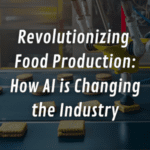Three Growing Trends in Technology


As the world becomes more reliant on technology, automation engineers play an increasingly prominent role in bringing new ideas and prototypes to life. Engineers possess the inventive skills necessary to create and improve everyday systems and devices in an always evolving, technology-focused landscape.
Here are three of the most prominent trends in technology and how automation engineers contribute:
1. Artificial Intelligence and Robotics
Artificial intelligence (AI), or the development of more human-like robots, is taking center stage in the technology world. The benefit of AI is its ability to address complex problems and reduce human labor, so it’s up to engineers to make AI systems faster, smarter and more efficient.
Companies regularly utilize AI to improve their products and increase sales, including retailers like North Face. The company recently announced a partnership with IBM Watson and e-commerce company, Fluid, to “launch a new AI-powered shopping tool to make it easier to find the right item.”
Several other industries are also making strides in the AI industry. For example, this Chinese factory has replaced 90 percent of its human employees with robots to reduce the amount of physical labor and increase factory efficiency. Driverless cars are also making progress as engineers continue to tweak, test and enhance autonomous vehicle prototypes.
For engineers, AI is creating brand new opportunities for those interested in STEM careers that focus on automation technology, robotics and the overall improvement of supply chain management from beginning to end.
2. Big Data
Our reliance on technology is, in large part, responsible for the mass creation of “big data” from all devices. Many companies across all industries have turned their focus to analyzing this data and using gathered insights to improve their processes, products and services.
Engineers are creating new systems to enhance the process of data collection, storage and analysis. The cloud is one particularly important piece of this puzzle, as it can store large datasets in one easily accessible location. By pulling data from the cloud, analysts can glean insights and identify trends business leaders need to improve their processes.
For example, manufacturing companies analyze big data to learn how to modify each stage of the manufacturing process and the supply chain lifecycle. Data analysis allows them to discover new ways to make each part of the supply chain “communicate” with the others, ultimately creating smarter processes that save both time and money – two primary focuses when running a manufacturing business.
3. Cyber Security
Cyber security is a regular topic in the news and it’s no surprise why. Cyber hackers have taken aim at voter databases, hospitals, large online retailers and virtually all connected devices. These attacks have highlighted the weaknesses of our increasingly cyber world and the danger of having private information stored in vulnerable locations. “There is no data center or network in the world that hasn’t been hacked,” said John Chambers, then-CEO of networking company, Cisco Systems, in 2015.
For that reason, there is a growing focus on cyber security and protecting data and information from hackers. Today, engineers need to think of more innovative ways to build networks to prevent cyber attacks, and they can do so by thinking like hackers. By knowing what hackers look for and the techniques they use to breach security, engineers can advance network security to defend against cyber crime.
The field is growing exponentially across industries, from law offices to government agencies. Additionally, many colleges now offer computer science degree programs with cyber security as a specialization to address the growing industry concerns.
Behind every piece of technology are the engineers who created it. From concept to product launch, engineering plays an important role in how things work and how to make things work better. This is especially true for some of the most prominent trends in technology today, from artificial intelligence and robotics to the protection of our data from hackers.
About the Author:
This guest post is written by Kyle Martin who brings 11 years of storytelling experience to the content coordinator position at Florida Polytechnic University. In this role, Martin develops original content showcasing the University experience as a way to attract new students and faculty. He also lends editorial direction to University departments launching new projects and campaigns.




